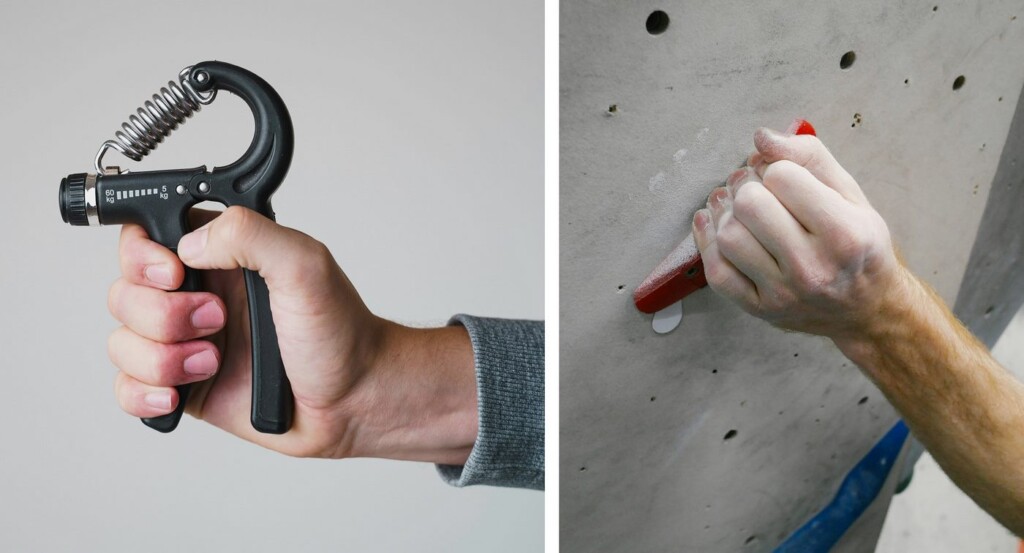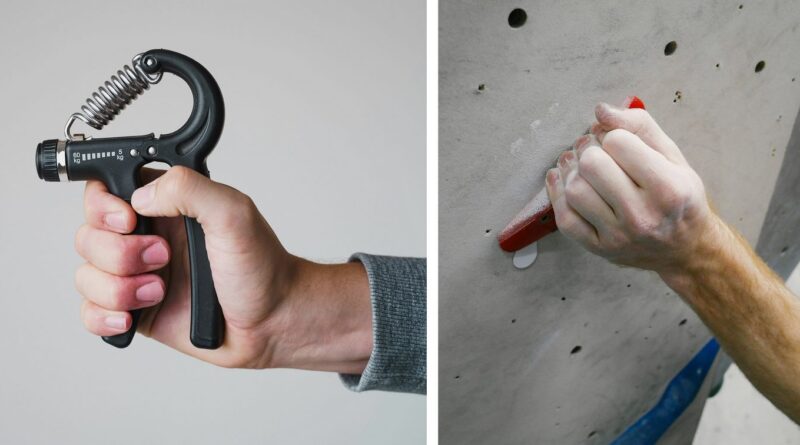This Rarely-Trained Muscle Is Recognized Worldwide as a Marker of Human Health–And the Test for Living to 100

If the man on the street had to guess the best metric for healthy aging, they might say blood pressure, cholesterol levels, lean muscle mass, blood triglycerides, or even telomere length if they follow aging science closely.
But it turns out that one of the best is grip strength. This relatively underdeveloped area of conditioning is increasingly recognized as one of the most reliable markers of human health, according to Joshua Davis at the University of Derby, UK.
Grip strength is associated with positive health outcomes, whether measuring for diabetes risk or depression, and you don’t need any expensive equipment to measure it. Davis recommends you simply pop the top off a can of tennis balls.
“Being able to maintain a maximal squeeze on something like a tennis ball for 15-30 seconds would be a good standard to strive for,” Davis told the BBC.
It’s not necessarily the case that being the one in the house whose hands are the most capable of opening a stubborn pickle jar means you’ll live the longest, rather it’s the case that grip strength is an efficient proxy for total muscle conditioning, which is itself a great proxy for overall nutrition, physical activity, and disease profiles. In other words, it’s a proxy for a proxy.
For example, the BBC report cites one study that found grip strength to be an effective predictor of sarcopenia, the decline in muscle conditioning associated with aging that’s strongly correlated with mortality. The correlation can be seen in another study which found that of those in middle age who had their grip strength measured in 1965, the ones which lived to be 100 were 2.5 times more likely to have had grip strength results in the highest third.
The prognostic value of grip strength for human longevity was found in yet another paper to exceed blood pressure—one of the vital signs controlled for in any patient that visits a hospital.
It’s almost certainly not the case that developing grip strength alone will protect against disease and early mortality; as mentioned above, it’s a proxy for overall muscle conditioning.
STRENGTH AND CONDITIONING: When Your Muscles Work Out, They Help Neurons Grow and Heal 4x Faster, MIT Study Shows
There’s an old saying in medicine: “Break your hip, die of pneumonia.”
Muscle mass is one of the best defenses against the ravages of age. It cushions the joints and bones and provides protection from falls and the subsequent fractures that gave rise to this ghastly adage. It also soaks up excess glucose in the blood to reduce the risk of developing type-2 diabetes or insulin resistance.
LONGEVITY SCIENCE: Man’s Biological Clock Set Back 10 Years After 93 Days Living Under the Ocean in a Research Station
The BBC also spoke with Mark Peterson, a physical medicine and rehabilitation professor at the University of Michigan, who ran a 2022 study which found that deep down in our DNA, patterns of methylated molecules in those who had weak grip strength indicated they were aging at an accelerated rate.
If you don’t happen to have a grip dynamometer on hand to measure exactly how much force your handshake can doll out, you can always perform the tennis ball test.
SHARE This Surprise Measure Of Health And Fitness With Your Friends…

